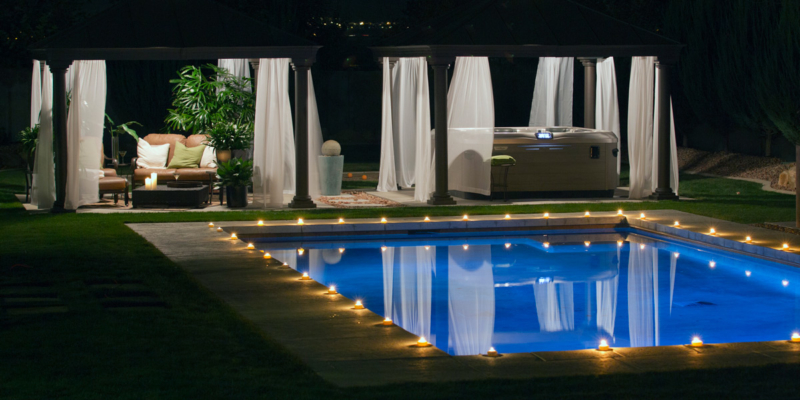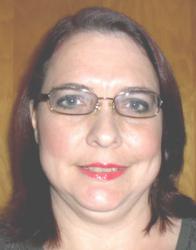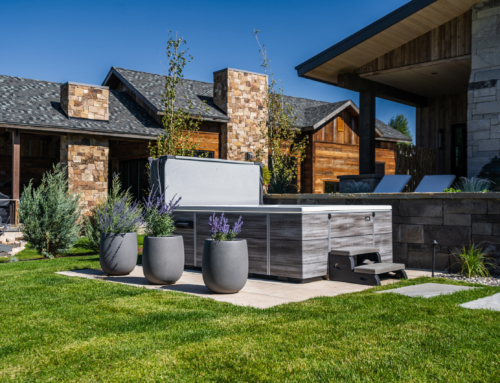What is the first thing that comes to mind when you hear the word “accessories”? As a spa retailer, you probably imagine an opportunity to increase sales and profits and you are right. What you need to realize, though, is that your customers imagine something completely different. Consumers often consider accessories to be nice, but unnecessary, extras. To overcome this mindset, spa salespeople must help customers differentiate between accessories that are nice to have and accessories they need to have to make the most of their spa experience.
Accessory or Necess-ory?
A “necess-ory” is a necessary accessory. Think of “batteries not included.” The retro “Tickle Me Elmo” you bought your kid is a fun, cuddly toy as is, but if you spend a little bit more for batteries your child can experience the toy’s full potential. The same is true for spa accessories: spa covers may be sold as accessories, but they are actually necessary for maintaining the quality of the spa water, for increasing energy efficiency, and for safety. Take a look at the following list and ask yourself which of these items is a necessity, an accessory, or a necess-ory:
- Cover lifts
- Cover locks
- Steps/steps with storage
- Hand rails
- Umbrellas
- Booster cushions
- Spa pillows
- Cup holders
- Trays/tables (attachable or floating)
- Floating games
- Sound systems
- Towel warmer
Would you be surprised to know a case could be made that every one of these items is a necess-ory? It’s true. Whether an accessory is necessary depends solely on the customer and their perception of their own wants and needs. People with children are more likely to consider a spa cover lock a necessity while an older couple is going to see the value of non-slip steps and safety rails. Every accessory in your store is a necessity for someone, and it’s your job to make them aware of it.
Every accessory in your store is a necessity for someone, and it’s your job to make them aware of it.
Basic Accessory Sales Techniques
By now, if it wasn’t already, it is clear that accessory sales are important. Steve Lopez at Oasis Hot Tubs and Saunas in Nashua, NH calls accessory sales “the easiest way to increase your average sale and bottom line profit.” Lopez shared his five-step accessory selling technique with H2Insider:
- Determine the size of the spa, its location, and who will be using it.
- During product presentation, suggest accessories based on customer needs and product benefits (steps, music, tables, etc.).
- Provide options for accessory pricing: step pricing and style options, lift options based on spa location and logistics. For example, tell them that steps range from $100 to $600 and lifts range from $200 to $600 and ask them “which one works best for you.”
- Always be asking customers “is this something you could use” or “would you benefit from this.”
- NEVER wait until the close of the sale to present accessories.
The best way to train your employees to upsell spa accessories is to have them offer every accessory to every customer every time, according to Lopez. By gradually incorporating accessories into the sales presentation, you are able to tie the value and/or benefit of each item to the overall spa experience. When asked what accessory he focuses on the most, Lopez says his team mentions steps and lifts early on in the presentation because these items are not included as part of the spa price. Here are just a few of the other items they work into their sales:
- Audio systems
- Ozone systems
- Circ pumps
- Spa side tables and stools
Each customer is given a written quote that includes a line item for every accessory as well as the spa itself. Every accessory is listed at 100% value to allow room for negotiation at the close of the sale. Lopez feels that, “as a salesperson, you are doing the customer a disservice by not showing or selling them every accessory.”
In a Nutshell
Spa salespeople know that one of the keys to making a sale is showing the customer how a spa can benefit them personally. A person may come into your store looking for a way to reduce their stress, but walk out with a spa because they discovered it could also help reduce muscle and joint pain. This logic applies to accessories as well. Forbes gives a simple, four-step approach to successful accessory sales:
1. Show the customer the accessory is relevant to their original purchase.
- If they bought a spa, sell them a cover.
- If they bought a cover, sell them a lift.
2. Make customers sell themselves.
- “You’re interested in steps? How about this one with storage space inside?”
- “You like these steps? Check out this nifty feature (show them storage space).”
3. Offer small “bundle” discounts.
- “I see you have children. Because you’re buying this hot tub today, I’ll throw in a cover lock at a significant discount for added safety.”
- “Since a major reason you’re buying a hot tub is to relieve arthritis pain, let me add a discounted handrail to your purchase today.”
4. Show them how the accessory solves a problem.
- Covers protect water quality and increase energy efficiency.
- Cover lifts make it easier to access your hot tub.
- Cover locks provide safety for your children.
- Umbrellas let you use your hot tub rain or shine and provide protection from the elements.
Chances are if they are ready to spend $7,000 to $10,000 on a spa, they won’t have any qualms about adding a $200 step to their final purchase.
Don’t forget the little things, either. Start by asking them to describe their ultimate home spa experience. Pay attention to little details like relaxing music, the scent of tropical flowers, a glass of wine, soft lighting and so forth. In this short description there are ideas for accessories this particular customer might be interested in: sound system, fragrance items, cup holders or floating drink tray, hot tub lights, towel warmers and spa pillows to name a few.
The point is to go beyond the practical like steps, covers, locks and rails to indulge the romantic ideal of the spa experience. Remember, every accessory in your store is a necess-ory to someone.








Leave A Comment